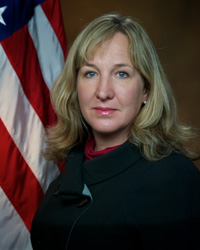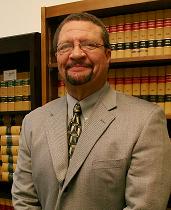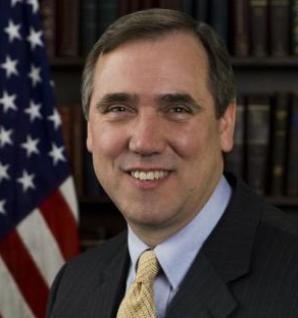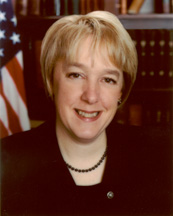It's easy for ordinary people to be ripped off by big corporations, banks and financial profiteers. When you take out a loan, sign up for a credit card, send money across international borders, take out a mortgage or deal with debt collectors, you could be dealing with a businesses operating on the edge of the law –or outside it. In fact, every time you sign a contract, you take a risk. So who is in your corner when it comes to dealing with financial products and services? Do you know your rights?
1. Which federal agency is charged with helping Americans get a fair deal from banks, loan and credit, and money transfer companies?
A. The General Accounting Office
B. The Securities and Exchange Commission
C. The Consumer Financial Protection Bureau
D. The General Services Administration
ANSWER: C The Consumer Financial Protection Bureau was set up in 2011 to give consumers protection in their dealings with the financial products and services industry. It makes rules for financial services companies, enforces the rules, recovers money wrongly taken from consumers and monitors the industry for problem practices. Visit the Consumer Financial Protection Bureau website.
2. Which of the following examples of debt collection are illegal under federal law?
A. A collection agent calls you at all hours to recover a debt, sometimes even at 2 a.m. or 3 a.m.
B. A collection agent calls and says if you don't pay your debt you will be arrested and jailed.
C. Without your knowledge or permission, a collection agent calls your workplace and tells your co-worker she is collecting a debt from you.
D. You pay your debt installment on time, but it takes a week for the collection agency to process it. It posts two days after the due date. The agency charges you a late fee.
E. All of the above
ANSWER: E The examples all violate the Dodd-Frank law against "abusive, deceptive and unfair practices."
3. An attorney from Portland is one of 25 people appointed by President Obama to the Consumer Financial Protection Bureau Advisory Board. Who is it?
 A. Amanda Marshall A. Amanda Marshall | B. Robert Stoll |
 C. Kenneth Walker |  D. Amy Margolis D. Amy Margolis |
ANSWER: B Portland attorney Robert Stoll began his career as a civil rights lawyer and became one of the most successful consumer protection lawyers in the country, winning class action suits against corporations that broke the law. He also was the lead attorney for Alaskan towns in the Exxon Valdez oil spill case.
Click on the photos to find out more about the attorneys pictured.
4. The Consumer Financial Protection Bureau was created two years ago. Since then, how much money has it given back to consumers because of illegal practices?
A $430 million
B $175,000
C $25 million
D $100 million
ANSWER: A. The agency has recovered $430 million so far from more than 175,000 complaints. View the graphic here.
5. You can enter a complaint to the Consumer Financial Protection Bureau about:
A. Credit reports and debt collectors
B. Mortgages and student loans
C. Overseas money transfers
D. All of the above and any other financial services company.
ANSWER: D You can make a complaint to the Consumer Financial Protection Bureau online at their website or by calling 855- 411-2372
6. Which area of the financial services industry has generated most consumer complaints so far?
A. Payday lenders
B. Debt collectors
C. Mortgage lenders
D. Student loans
ANSWER: C Mortgage lenders generated 85,200 complaints compared with: 36,300 credit card complaints; 25,700 bank account complaints; 14,200 credit report complaints; 6,000 private student loan complaints; 5,700 consumer loan complaints; and 300 money transfer complaints. The agency began taking debt collection complaints in July.
7. A college education is one of the most important pathways into higher paying jobs. But the economic downturn has left one in eight student borrowers in default. Which of the following is an option for student loan borrowers?
A. You can apply to spend a year as an Americorps Vista volunteer. As a volunteer you will earn a small living allowance and at the end of your service receive up to $5,500 (2013 amount) to pay off your education debt.
B. You can apply for the Pay as You Earn program, which allows borrowers to pay 10 percent of whatever they make above the federal poverty line, and then have the balance of their debt forgiven after 10 or 20 years.
C. If you are in default you can rehabilitate your loan by paying nine consecutive on-time payments, based on your income. You only need to make a payment that is reasonable and affordable for your situation.
D. All of the above.
ANSWER: D Find out more about paying for college, and compare costs at different institutions on the CFPB website.
8. Which Senator from the Northwest has championed consumer financial rights as a member of the Senate Banking committee?
 A. Sen. Jeff Merkley D-OR |  B. Sen. Maria Cantwell D-WA |
 C. Sen. Patty Murray D-WA |
ANSWER: A Sen. Jeff Merkley has been an outspoken supporter of consumer issues such as: foreclosure prevention; affordable education loans and to rein in Wall Street. While in the Oregon Legislature, Merkley led the effort to cap interest rates on payday loans and fees.
Merkley has been "a godsend," says Robert Stoll, the Portland attorney on the CFPB advisory committee. "I'm very thankful he has been there for us. He was a brand new first-term senator, but he was the number one leader in the Republicans finally agreeing to confirm Richard Cordray to the CFPB. Oregonians should be proud of Sen. Merkley."
Click on the photos to link to each senators committee assignments.
Sen. Patty Murray has spoken out on the need to keep student loans affordable. She serves on the powerful Senate Appropriations committee and its financial services subcommittee among others.
Sen. Maria Cantwell serves on the Senate Finance Committee and has supported attempts to reform Wall Street. A bill to regulate the derivatives market succeeded, but attempts to restore the Glass-Steagall Act, which regulated banks, ensuring main street banks and investment banks remained separate, did not pass.
Sen. Mark Begich voted to prevent the doubling of student rates and to confirm Richard Cordray as executive director of the Consumer Financial Protection Bureau. He serves on the Appropriations committee, among others.
Return to quiz without answers










